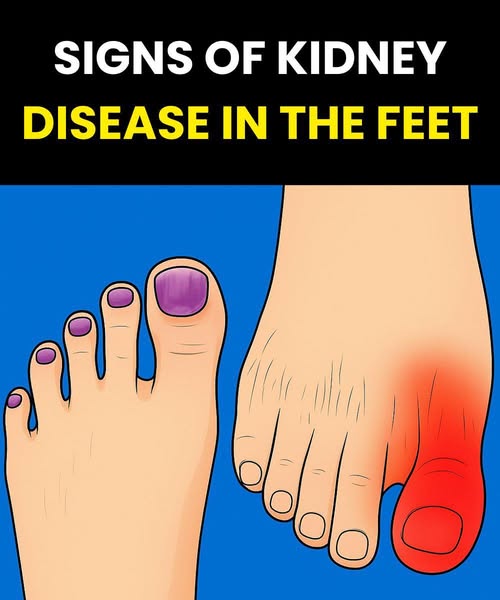4. Skin color changes

Kidney-related circulation problems may cause the feet to look pale, bluish, reddish, or darker than usual. These shifts can reflect issues such as poor blood flow, venous congestion, or hyperpigmentation.
5. Dry, itchy skin
Excess phosphorus and other waste products not cleared by the kidneys may cause dryness and persistent itching, particularly around the feet and ankles.
6. Slow-healing wounds or ulcers
Poor circulation and nerve damage can impair healing, leading to stubborn sores, ulcers, infections, or even gangrene if untreated.
7. Restless legs syndrome

Uncomfortable sensations—burning, tingling, or an irresistible urge to move the legs—are common among people with chronic kidney disease. Symptoms often worsen at night and may be linked to iron deficiency or low erythropoietin (EPO), both associated with kidney-related anemia.
8 & 9. Additional early warning signs
Other changes may also point to kidney problems, including:
Alterations in the nails (such as banding or unusual discoloration).
Muscle cramps, persistent fatigue, or shortness of breath caused by mineral imbalances or anemia secondary to kidney dysfunction.
Why early detection matters
Recognizing these signs promptly can make a significant difference—helping slow disease progression, reduce complications, and sometimes even prevent the need for dialysis or transplantation.
⚠️ Important: If you notice any unusual or persistent symptoms, consult a healthcare provider. Blood tests (for kidney function and electrolytes) and urine tests are essential for accurate evaluation and timely treatment.

